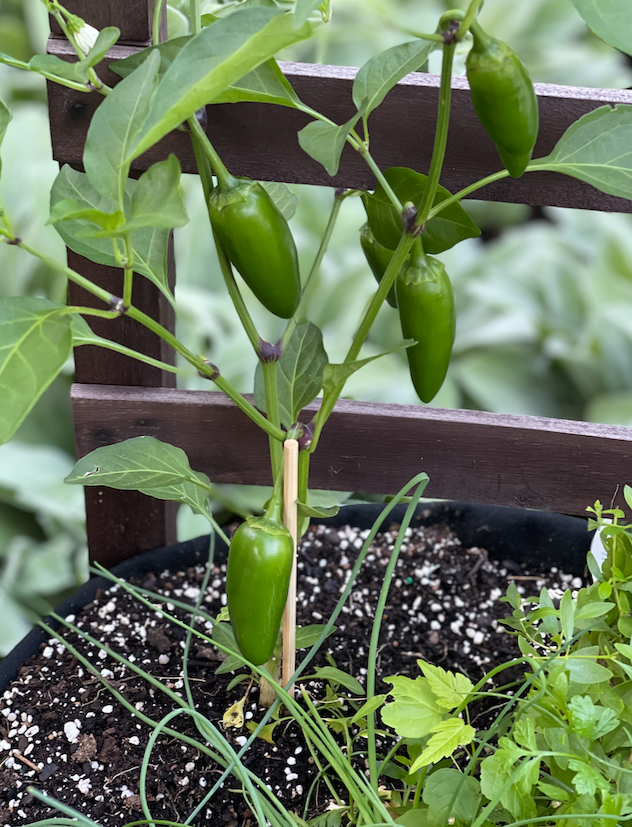Explore the Best Fertilizers for Peppers and Enhance Your Yard's Yield
Organic Vs. Synthetic Fertilizers: Which Is Best for Nurturing Healthy And Balanced Pepper Plants?
In the world of nurturing healthy pepper plants, the selection in between natural and synthetic fertilizers stands as a pivotal choice with significant ramifications. While both options purpose to give necessary nutrients to support plant growth, the subtleties of their effect on the soil, plant wellness, and the setting stimulate a debate that mirrors throughout the gardening area. Comprehending the distinct benefits and prospective pitfalls of each plant food type is essential for pepper farmers looking for to optimize their returns while preserving an eco-conscious and lasting method.
Advantages of Organic Fertilizers
Organic fertilizers supply an environmentally-friendly and sustainable technique to nourishing pepper plants, providing essential nutrients without the usage of synthetic chemicals. These all-natural fertilizers are acquired from organic resources such as compost, manure, bone dish, and seaweed, advertising soil wellness and biodiversity. Unlike synthetic plant foods, natural choices release nutrients gradually, ensuring a stable and balanced supply for pepper plants to thrive.
One substantial benefit of natural fertilizers is their ability to boost soil structure and water retention. By boosting dirt health, natural plant foods advertise useful microbial task, which aids in nutrient uptake by pepper plants. Furthermore, natural plant foods reduce the risk of chemical run-off, securing water resources from pollution and securing the setting.
Furthermore, organic fertilizers add to lasting dirt fertility by advertising the growth of advantageous soil microorganisms. These microorganisms aid damage down raw material, releasing nutrients in a form that is easily available to pepper plants. best fertilizers for peppers. By promoting a healthy and balanced dirt ecological community, natural plant foods support lasting pepper farming techniques that profit both plants and the setting
Downsides of Artificial Plant Foods
Synthetic plant foods, in comparison to their organic equivalents, present different drawbacks when made use of to nurture pepper plants, impacting both plant wellness and ecological sustainability. One major downside of synthetic fertilizers is their propensity to leach nutrients from the dirt swiftly.
Furthermore, the overuse of artificial fertilizers can add to water air pollution. Excess fertilizers not soaked up by plants can get rid of right into water bodies, causing eutrophication, where algae blooms diminish oxygen levels in the water, damaging water life. Furthermore, synthetic plant foods are commonly obtained from non-renewable sources, such as fossil fuels, adding to carbon emissions and ecological degradation throughout their production.
Nutrient Absorption Contrast
Effective nutrient absorption plays a crucial function in the total health and development of pepper plants. When contrasting organic and artificial plant foods in terms of nutrient absorption, natural plant foods have the advantage of supplying a more balanced and slow-release resource of nutrients (best fertilizers for peppers). Organic plant foods include a selection of macro and micronutrients that are not only valuable for the plants but likewise advertise healthy dirt microbial task, which helps in nutrient uptake. On the various other hand, artificial fertilizers commonly provide a quick launch of nutrients, which can lead to leaching and drainage, resulting in lower nutrient absorption prices by the plants.
Furthermore, organic fertilizers enhance soil structure and water retention capability, enabling pepper plants to accessibility nutrients extra successfully. This improved soil quality facilitates root development, enabling better nutrient absorption. Synthetic fertilizers, although initially boosting plant growth as a result of their high nutrient focus, might impede long-lasting nutrient absorption by degrading soil health in time.
Environmental Influence Factors To Consider

On the various other hand, synthetic plant foods, although usually more immediately offered and concentrated to plants, can have damaging effects on the setting if web link not used correctly (best fertilizers for peppers). Their manufacturing requires high power inputs, resulting in greenhouse gas exhausts and contributing to environment change. The runoff of excess synthetic plant foods can contaminate water resources, leading to eutrophication and damaging water ecological communities.
Ideal Fertilizer Practices for Peppers
When fertilizing pepper plants, enhancing nutrient uptake and decreasing environmental effect are crucial factors to consider. To achieve this, it is necessary to adhere to best fertilizer techniques tailored to the particular demands of pepper plants. One essential technique is to execute a soil test prior to using any kind of fertilizers. This test can identify the pH degree of the dirt and recognize any kind of nutrient deficiencies, guiding you in selecting the most suitable fertilizer formulation.
Another important technique is to feed pepper plants at the correct time. Typically, peppers take advantage of receiving fertilizer at growing and after that once again when they start to flower. Over-fertilizing can bring about vitamins and mineral discrepancies and hurt the plants, so it is important to follow advised application prices.
Furthermore, choosing a well balanced fertilizer with an NPK you could try this out ratio that matches pepper plants' needs is essential. Organic fertilizers, such as garden compost or manure, can be exceptional choices as they launch nutrients slowly and improve dirt framework in time. However, artificial fertilizers can provide a fast nutrient boost when required. Ultimately, incorporating artificial and organic plant foods sensibly can help support healthy pepper plants while decreasing environmental influence.
Verdict

Organic plant foods supply a sustainable and environmentally-friendly strategy to nourishing pepper plants, offering crucial nutrients without the use of synthetic chemicals. Unlike artificial plant foods, natural options release nutrients gradually, making certain a balanced and consistent supply for pepper plants to thrive.
Synthetic fertilizers, in contrast to their organic equivalents, posture numerous drawbacks when utilized to nourish pepper plants, affecting both plant wellness and ecological sustainability. When contrasting synthetic and organic fertilizers in terms of nutrient absorption, organic fertilizers have the advantage of offering a more balanced and slow-release source of nutrients.Moreover, natural plant foods improve soil framework and water retention capacity, allowing pepper plants to access nutrients more efficiently.